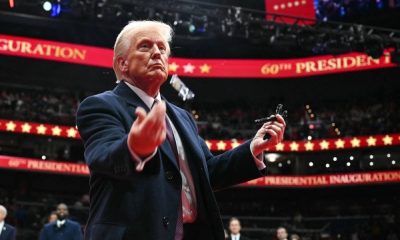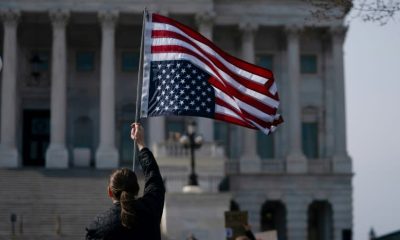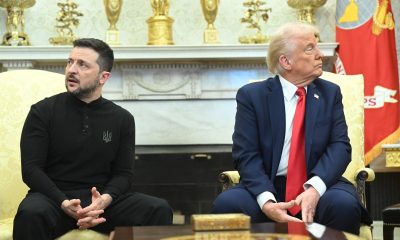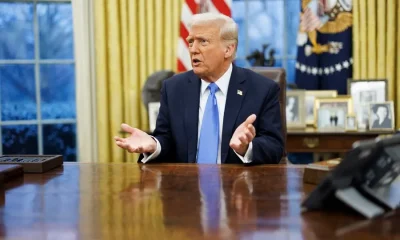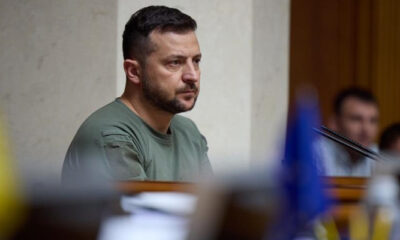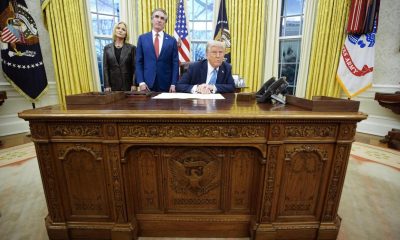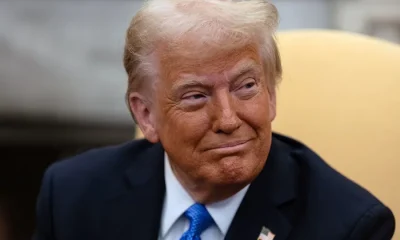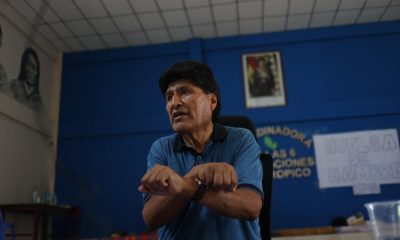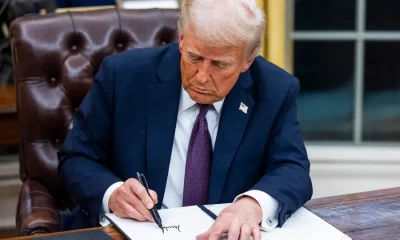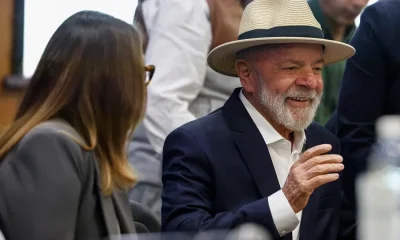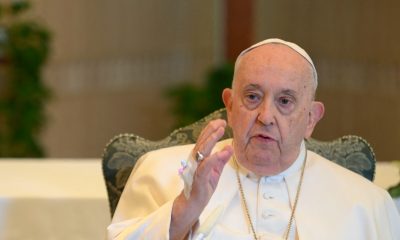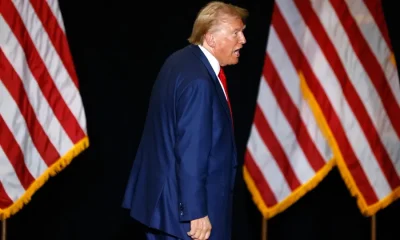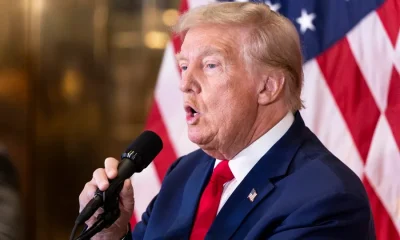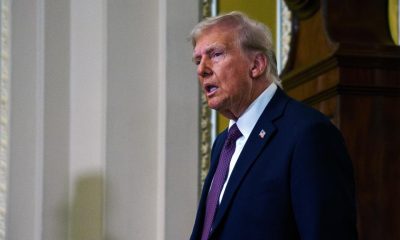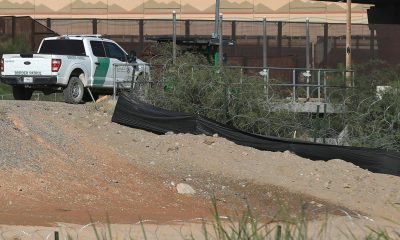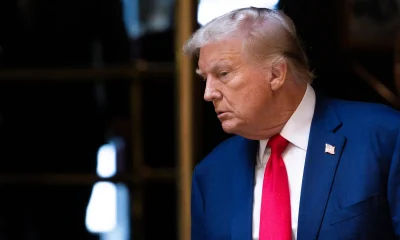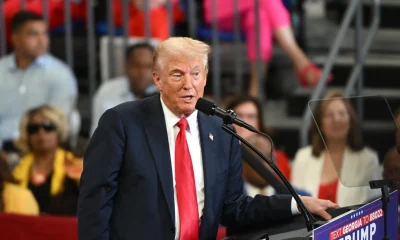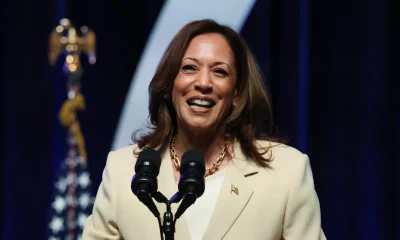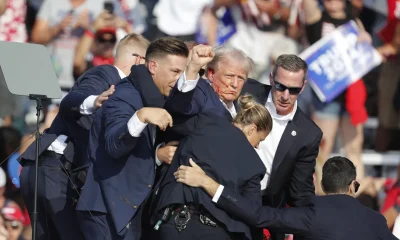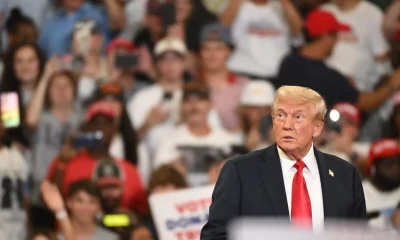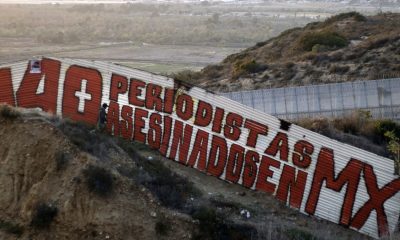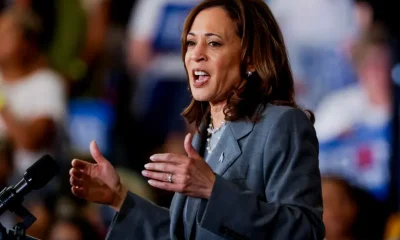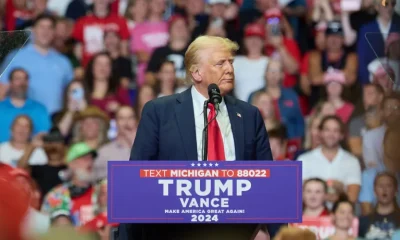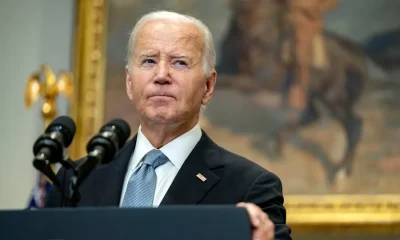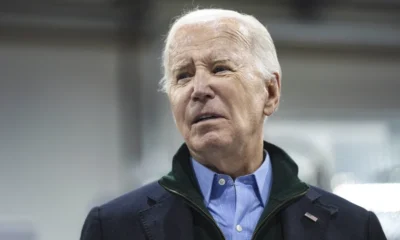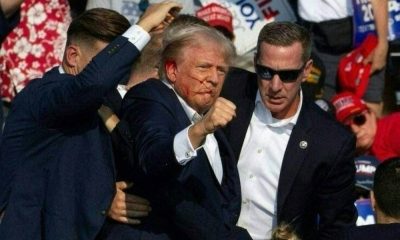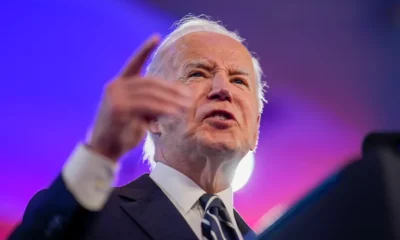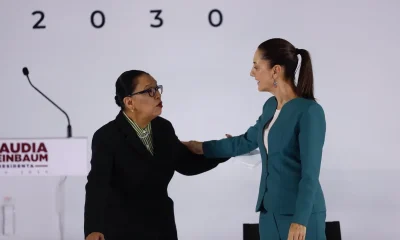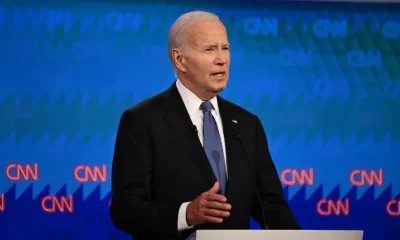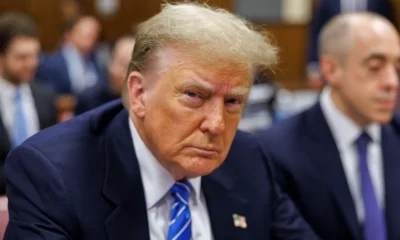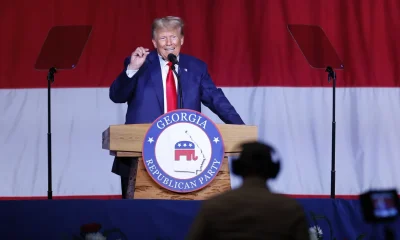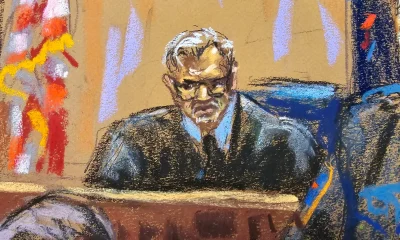International
Trump responds to López Obrador that he “won’t give him even 10 cents” for migration
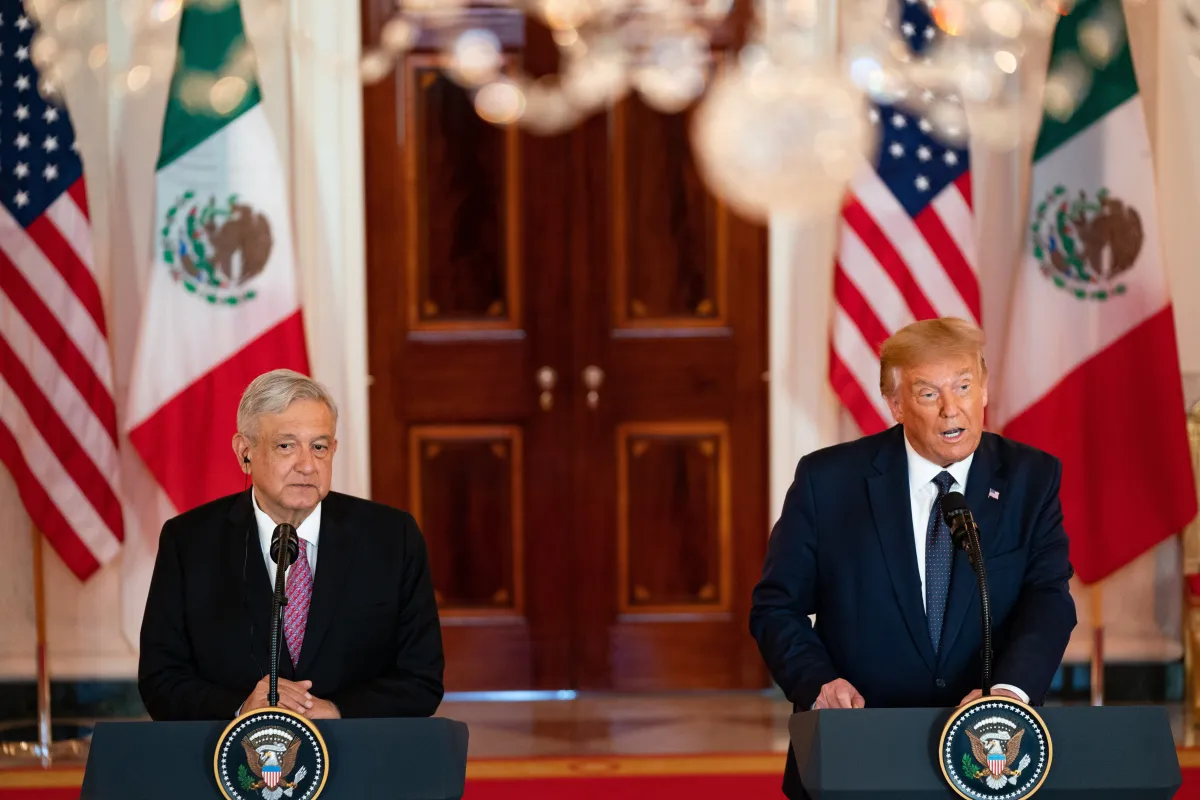
Former US President Donald Trump (2017-2021), future candidate of the Republican Party for the November elections, assured that he would not give even 10 cents for migration to the president of Mexico, Andrés Manuel López Obrador.
Trump made these statements during an interview with Fox News, in which he reacted to the comments made by López Obrador a week ago in an interview with CBS, where he asked the United States to invest $20 billion annually for the development of Latin America and thus reduce migration.
The tycoon rejected López Obrador’s requests and suggested that, if he were in the White House, the Mexican would not even have dared to make that request.
“They would never tell me that with me,” Trump said, adding: “I wouldn’t give him 10 cents.”
López Obrador has been asking the United States for years to invest billions of dollars in the development of impoverished countries in Latin America and the Caribbean, as a strategy to prevent their nationals from being forced to migrate to the north.
Meanwhile, Trump, who arrived at the White House in 2017 with the promise of building a wall on the border with Mexico, has adopted strong anti-immigration rhetoric at his campaign rallies.
He has gone so far as to affirm that foreigners “poison” U.S. blood and has proposed plans ranging from massive deportations to the construction of giant centers to detain undocumented migrants.
The president of Mexico was convinced in an interview with the American program ’60 Minutes’, broadcast on March 24, that Trump will not follow the construction of a wall on the southern border, to return to the White House, and that the wall also “does not work” to solve the current migratory chaos.
“The wall doesn’t work!” exclaimed the Mexican ruler, who believes that Trump would not raise it “because he needs Mexico.” “We understood each other very well. We signed a trade agreement that has been favorable for both peoples. He knows it. And President Biden too,” he said in the interview with ’60 Minutes’ correspondent Sharyn Alfonsi.
For López Obrador, the solution to the migration crisis on the southern border is because Washington commits to sending 20 billion dollars a year to the poorest countries in Latin America and the Caribbean and legalizes millions of law-abiding irregular Mexican immigrants based in the United States, among other conditions.
International
Spain’s irregular migrant population rises to 840,000, study finds
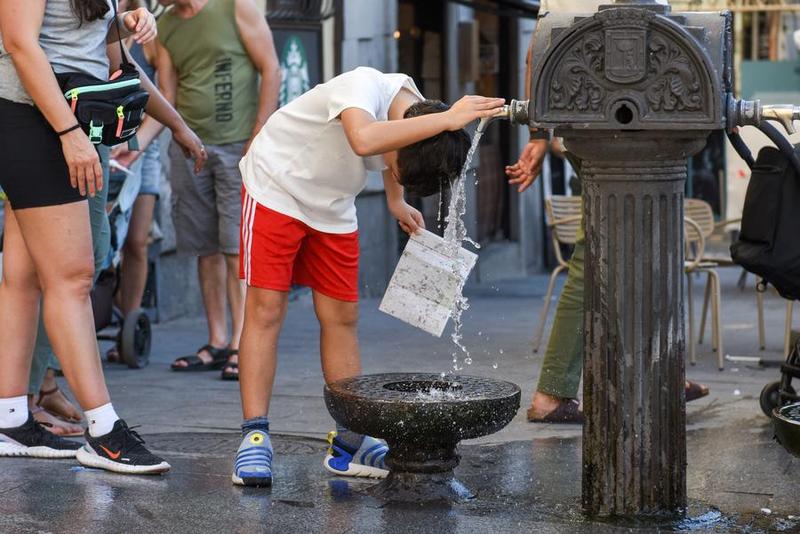
The number of migrants living in Spain without legal residency status continues to rise and has reached 840,000 people, with 91% originating from the Americas, particularly Colombia, Peru and Honduras, according to a report by the Spanish think tank Funcas (Foundation of the Savings Banks).
An estimated 17.2% of the non-EU foreign population living in Spain is in an irregular administrative situation. The estimate is based on the gap between the number of foreign residents effectively living in Spain, according to the National Statistics Institute (INE), and those who hold a residence permit, benefit from international protection, or are in the process of obtaining it.
The data, as of January 1, 2025, point to a notable and sustained increase in irregular migration since 2017, when the estimated figure stood at around 107,000 people, representing 4.2% of the non-EU population residing in Spain.
By origin, migrants from the American continent stand out, totaling around 760,000 people, or 91% of all irregular migrants. Colombians account for nearly 290,000, followed by Peruvians with almost 110,000, and Hondurans with about 90,000. Migrants from Africa (50,000), Asia (15,000) and Europe (14,000) trail far behind.
The figures predate Spain’s latest immigration regulation reform, which came into force in May 2025 and introduces measures to ease access to legal status through residency ties. According to Funcas, the reform would, in principle, tend to reduce the number of migrants in an irregular situation.
International
Historic snowstorm paralyzes Toronto after 60 centimeters of snow

Toronto, Canada’s largest city and the fourth most populous in North America, was largely paralyzed on Monday after a historic snowstorm dumped up to 60 centimeters of snow and sent temperatures plunging to -15 degrees Celsius, authorities said.
Late Sunday, as the scale of the snowfall became clear, city officials declared a climate emergency, triggering extraordinary measures including parking bans on several major streets to facilitate snow removal operations.
Toronto’s public transit authority reported that while some buses remain immobilized, subway and streetcar services are operating with relative normality, though localized disruptions may occur.
A similar situation is affecting the city’s commuter rail network, which remains operational but is experiencing significant delays on its main routes due to the severe weather conditions.
International
Venezuela frees at least 80 political prisoners, NGO says
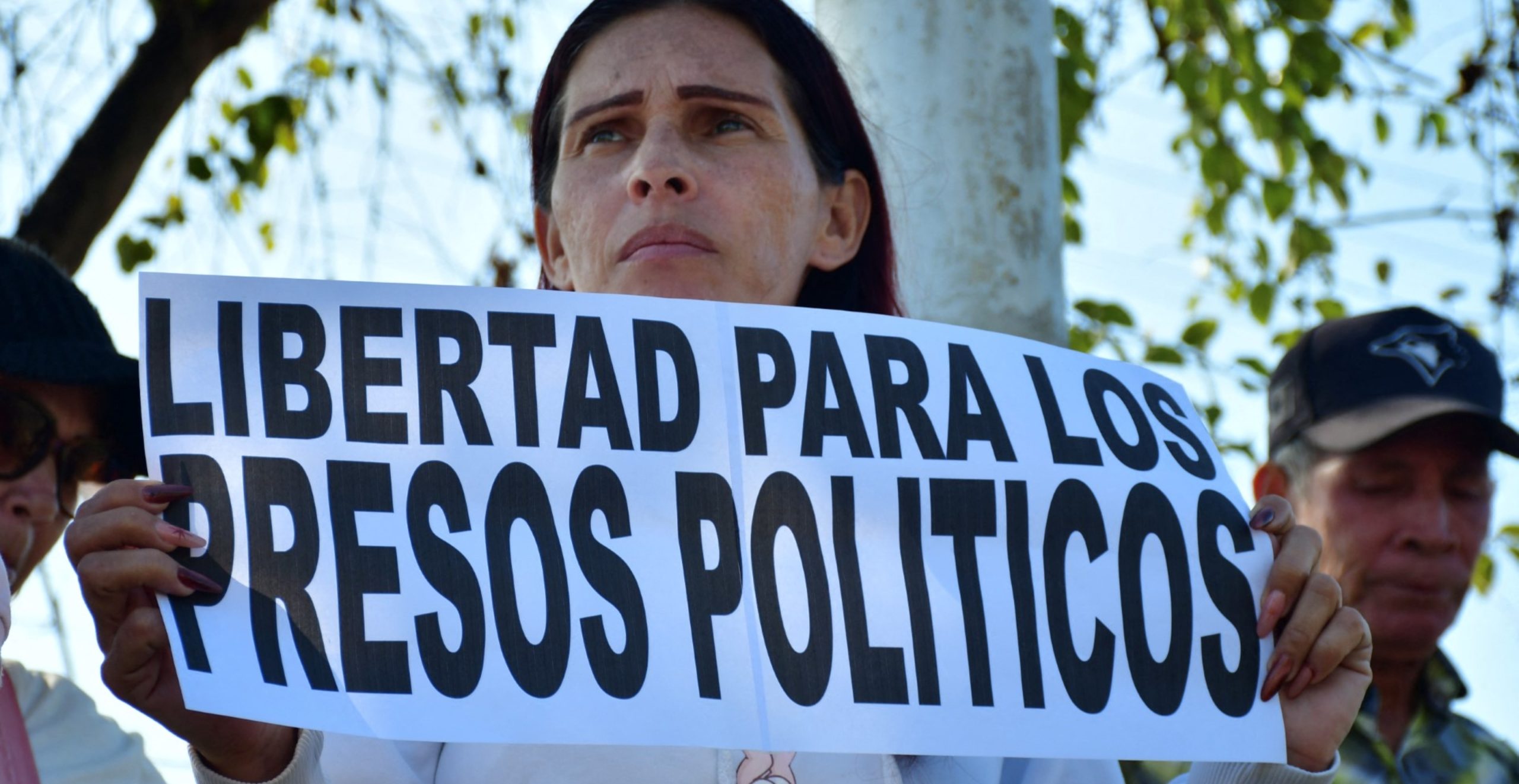
At least 80 political prisoners were released on Sunday across Venezuela, human rights group Foro Penal reported, as the broader process of detainee releases continues at a slow pace under the interim government.
Foro Penal’s director, Alfredo Romero, wrote on social media platform X that verified releases took place nationwide and that the figure could rise as more confirmations are completed.
Attorney Gonzalo Himiob, also from Foro Penal, said the excarcelations occurred during the early hours of the day and emphasized that the number is not yet final pending further verification.
The releases are part of a series of steps announced by Venezuela’s interim leader, Delcy Rodríguez, who took power after the capture of former President Nicolás Maduro in a U.S. military operation on Jan. 3, 2026. Rodríguez has pledged a significant number of liberations but has been criticized by opposition groups and rights organizations for the slow and nontransparent nature of the process.
So far, the Venezuelan government reports that 626 detainees have been freed since December, though independent counts by human rights groups suggest the number of actual political prisoner releases is lower and that many remain behind bars.
Families of those still detained have maintained vigils outside prisons, hopeful for further releases even as broader concerns about political imprisonment and due process persist.
-

 Central America5 days ago
Central America5 days agoMazatenango Carnival cancelled amid State of Siege in Guatemala
-

 International5 days ago
International5 days agoTrump to invite Venezuela’s interim president Delcy Rodríguez to Washington
-

 International5 days ago
International5 days agoMarkets rise as Trump halts Europe tariffs and floats Greenland agreement framework
-

 International5 days ago
International5 days agoVenezuela’s interim president predicts 37% increase in revenues for 2026
-

 International3 days ago
International3 days agoTrump-Era Defense Plan Prioritizes Border Security and Scales Back Global Commitments
-

 Internacionales4 days ago
Internacionales4 days agoMajor winter storm threatens “catastrophic” ice and snow across much of the U.S.
-

 Central America4 days ago
Central America4 days agoGuatemala’s president rules out negotiations with inmates after prison riots
-

 International5 days ago
International5 days agoFour minors killed in deadly clash between FARC dissidents in Colombia’s Amazon
-

 International5 days ago
International5 days agoJapan reopens Kashiwazaki-Kariwa Plant despite public concerns
-

 International3 days ago
International3 days agoBogotá and Quito Seek Dialogue After Tariffs and Power Cut Escalate Tensions
-

 International4 days ago
International4 days agoGuatemala considers sending high-risk gang members to military prisons
-

 International2 days ago
International2 days agoDelcy Rodríguez seeks political agreements after Maduro’s ouster
-

 International4 days ago
International4 days agoRights group says over 5,000 killed in Iran protests, mostly civilians
-

 International2 days ago
International2 days agoFederal immigration agents kill man in Minneapolis, sparking protests and outrage
-

 International18 hours ago
International18 hours agoHistoric snowstorm paralyzes Toronto after 60 centimeters of snow
-

 International18 hours ago
International18 hours agoSpain’s irregular migrant population rises to 840,000, study finds
-

 International19 hours ago
International19 hours agoRights group says nearly 6,000 killed in Iran protest crackdown
-

 Central America19 hours ago
Central America19 hours agoGuatemala seizes over a ton of cocaine hidden in flour at Pacific port
-

 International18 hours ago
International18 hours agoVenezuela frees at least 80 political prisoners, NGO says
-

 International18 hours ago
International18 hours agoEU launches new probe into X over AI-generated fake nude images
-

 International19 hours ago
International19 hours agoFrance debates ban on social media for children under 15
-

 International19 hours ago
International19 hours agoSevere winter storm grips U.S., leaves multiple dead as extreme cold persists



























